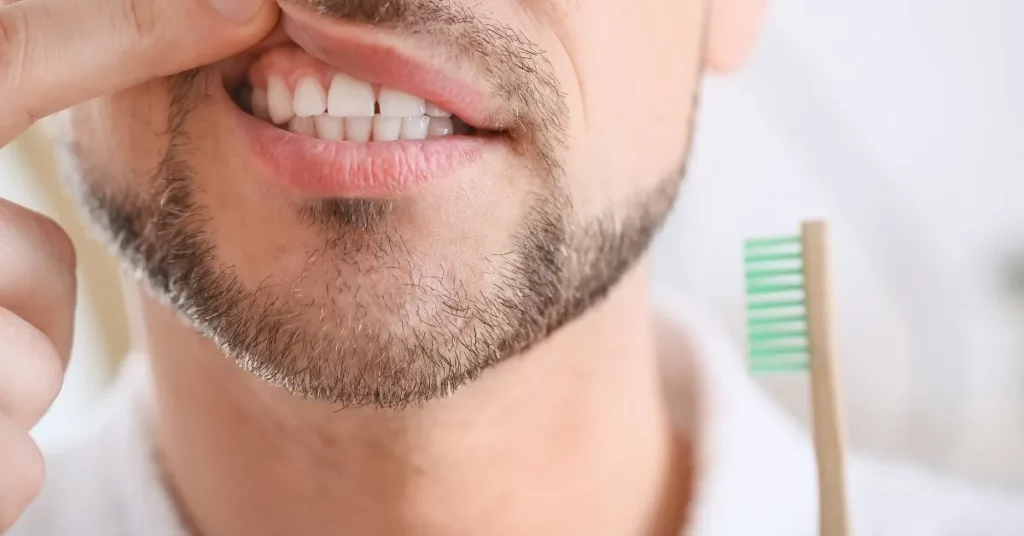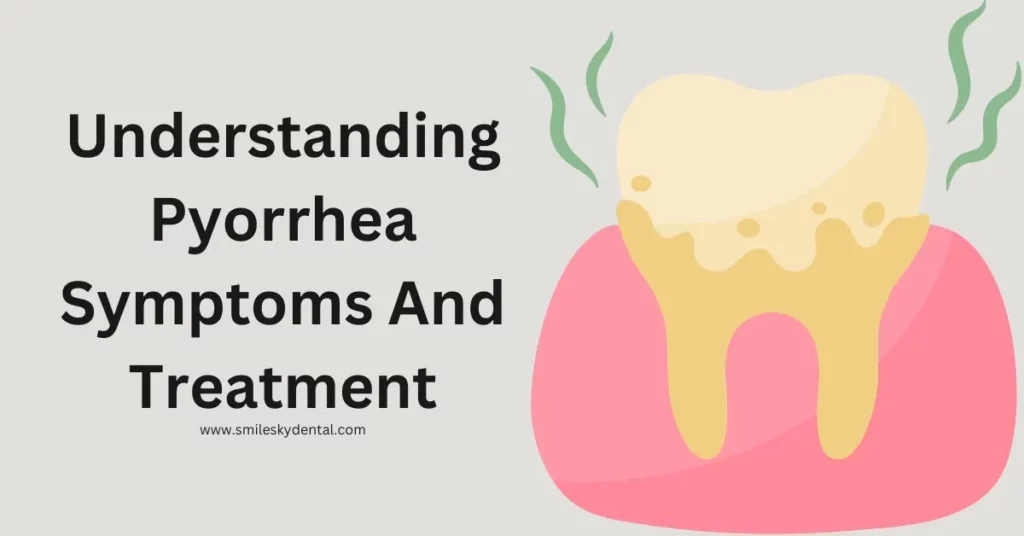Pyorrhea, which is also identified as pyria gum disease, is a common oral health issue hitting millions globally. This illness, marked by gum tissue inflammation and infection, can result in a range of distressing symptoms and potential complications for oral health.
In this piece, we will delve into the symptoms, available treatments, and significant differences separating pyorrhea from other gum-related concerns. Let’s discuss the pyria symptoms and treatment options.
Symptoms Of Pyorrhea
Pyorrhea gum disease can show up with a variety of signs that might differ in how serious they are. Ordinary pyorrhea symptoms include gums that bleed, gums that are swollen and red, ongoing bad breath, gums that recede, and small spaces forming between the teeth and gums.
These signs often happen because there is too much plaque and bacteria along the gumline. This makes the gums sore and puffy.
Difference Between Gingivitis And Pyorrhea
Telling pyorrhea apart from gingivitis is significant, as these are two gum-related issues. Gingivitis is the first phase of gum disease and mostly includes gum swelling, bleeding, and affection.
If not taken care of, gingivitis can move into pyorrhea, where the infection gets worse and might lead to teeth possibly falling out. This is why it is vital to notice the distinctions between these problems early on and act immediately.
Is Pyorrhea Hereditary?

A common question people ask is whether pyorrhea runs in families. While genetics can contribute to making someone more likely to have gum disease, it is mostly caused by not taking good care of your teeth and having too much plaque and bacteria.
Going to the dentist regularly and keeping your teeth clean can really lower the chances of getting pyorrhea.
Treatment options for pyorrhea
Dealing with pyorrhea means getting help from dental experts and taking care of your teeth at home. The dentists at Smile Sky Family Dental, a trusted place for oral health, can check how bad the problem is and suggest the right treatments.
These could be things like careful cleaning, smoothing the roots, using special medicines, and in worse cases, doing surgeries.
FAQs
What is pyria?
Pyorrhea, also called gum disease, is when your gums get inflamed, and it affects the parts that support your teeth.
Is pyorrhea hereditary?
While genetics can matter, not taking care of your teeth properly is a big reason for pyorrhea.
What are the symptoms of pyorrhea?
You might have gums that bleed, bad breath, swollen gums, gums that move back, and little spaces between your teeth and gums.
How to cure pyorrhea?
To treat it, you need help from dental experts. They will clean your teeth well, use special medicines, and sometimes even perform surgery if it is really bad.
What is pyorrhea of the mouth?
Pyorrhea of the mouth refers to advanced periodontal disease with inflammation and pus formation around teeth.
What is meant by pyria in teeth?
Pyria in teeth refers to severe gum disease characterized by infection, pus, and potential tooth loss.
What is pyorrhea definition?
Pyorrhea is a term describing advanced gum disease involving inflammation, infection, and potential tooth support damage.
What is pyorrhea medical term?
The medical term “pyorrhea” pertains to advanced periodontal disease, technically known as periodontitis.
Conclusion
To sum up, pyorrhea is a severe gum disease that needs care and treatment on time. The signs, like gums that bleed and breath that is not good, can make you uncomfortable and might even make you lose teeth if you do not get help.
Understanding pyria symptoms and treatment can help you navigate through the challenges successfully. It is important to tell pyorrhea apart from gingivitis. You can get treated by reliable places like Smile Sky Family Dental.
With our special care and you taking good care of your teeth, you can handle pyorrhea well, keeping your smile and overall oral health safe.


